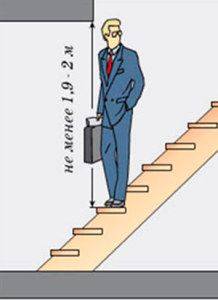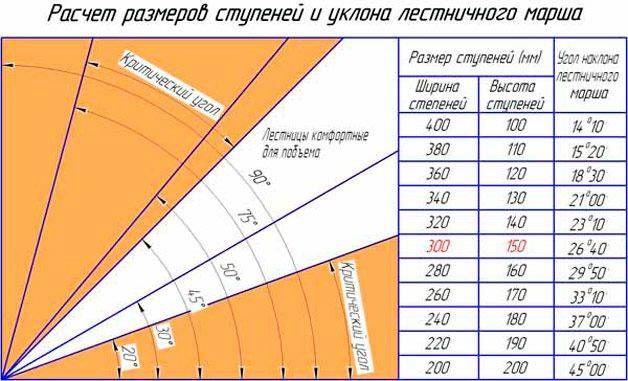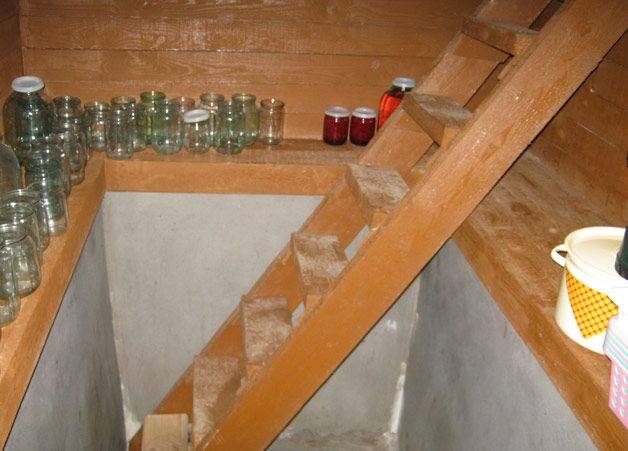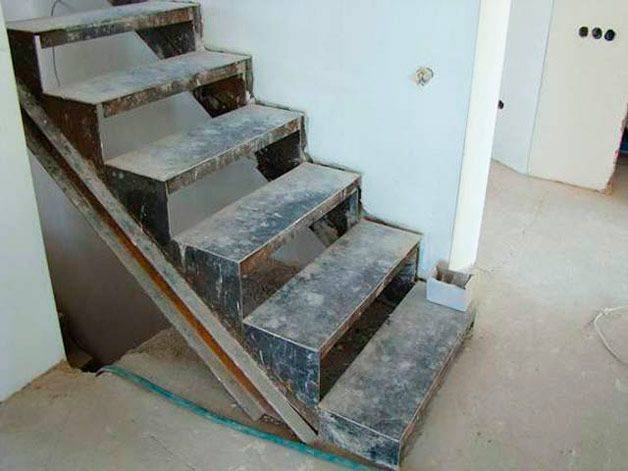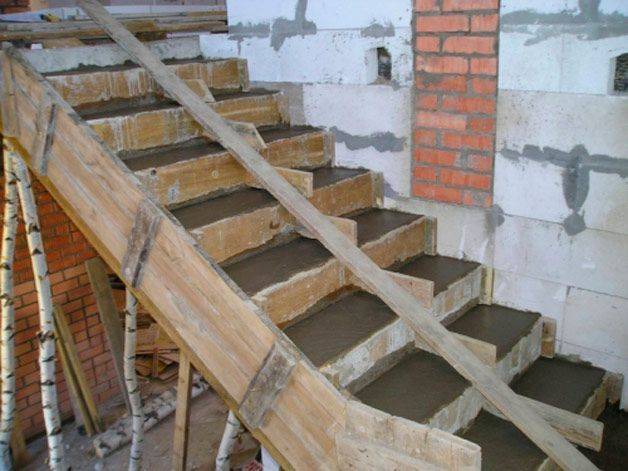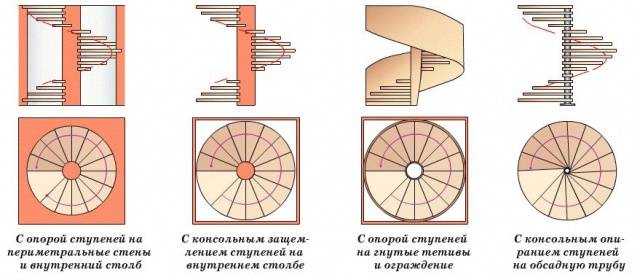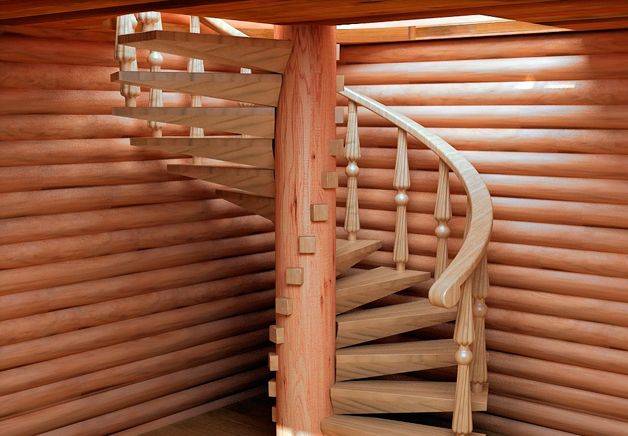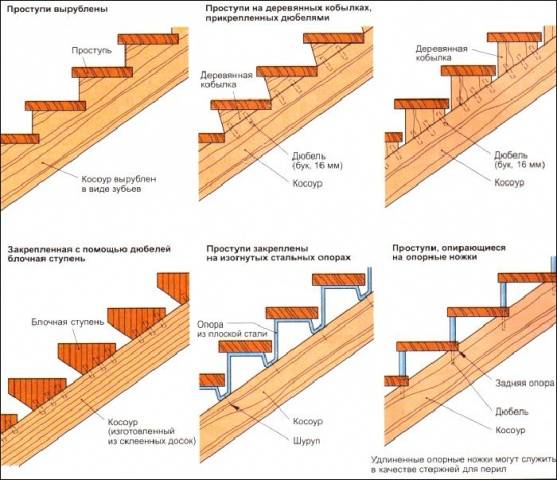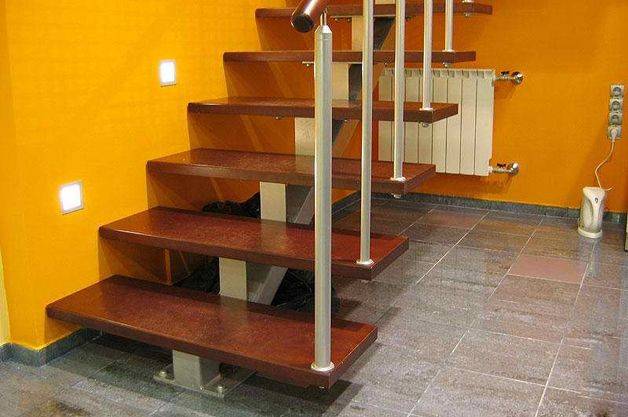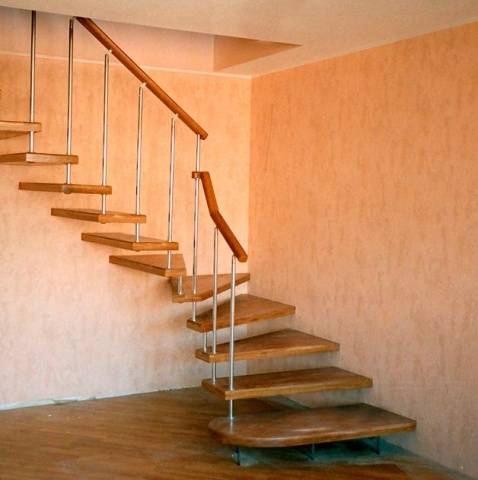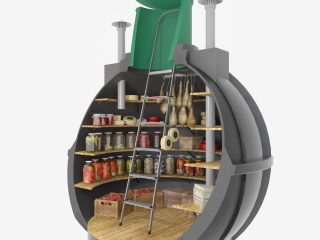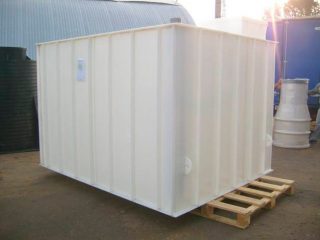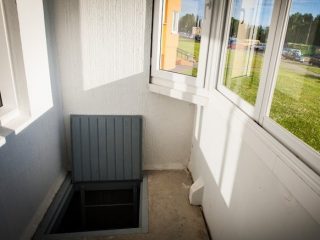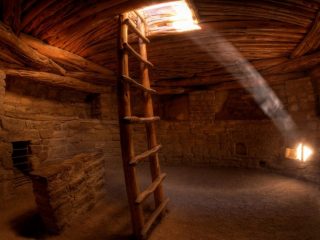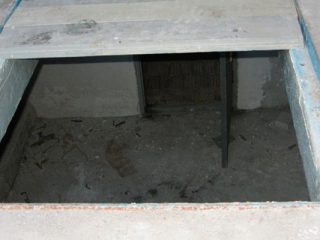Content
Every owner of a private yard acquires a cellar. It is dug under a house, garage, barn, or simply on the site. However, no matter the location, to get inside you need a staircase to the cellar, and it is very reliable and convenient. You will have to walk up the steps with a load. Perhaps children or elderly people will go down into the cellar. The staircase should provide a safe and comfortable descent without taking up extra space inside the cellar.
Basic requirements that should be followed when calculating the dimensions of the stairs
So, the cellar is located in the garage, under the house or on the plot; to get down inside you will need a convenient staircase. The simplest structure for basements is considered to be an attached structure, but it will not be possible to go down or up it comfortably. But you will still have to carry cargo with you, for example, potatoes or canned food. The best option is a flight of stairs. If the size of the cellar allows, then it is better to choose this option.
Having decided on the model, you should not immediately begin construction. First, they calculate the stairs, adhering to the following rules:
- The width of the march depends on the dimensions of the cellar. There are no special requirements for this parameter, but a structure that is too narrow cannot be built. Typically, the width of the stairs to the cellar is from 700 to 900 mm. A person must walk freely along the steps with a bucket of potatoes or other load.
- Correct calculation of the clearance ensures exactly the comfort of climbing stairs. This parameter refers to the distance from the steps to the ceiling of the cellar. Always measure the narrowest area. The distance from the bottom step to the ceiling should be 200 mm greater than a person’s height. When building a new cellar, a standard clearance of 2 m is made. If the clearance is made smaller than the norm, you will always have to climb out of the cellar in a bent state so as not to hit your head on the ceiling.
- The second important indicator of a comfortable descent is the slope of the stairs. It can be between 22–75O. On a steep slope from 45O They only install ladders into the cellar. Staircases have a gentler descent. The smaller the slope, the more comfortable it is to move along the march.
- A convenient step width is considered to be within 300 mm. A step that is too narrow or wide will cause discomfort to a person while walking.
- The height of the steps is 150–200 mm. Moreover, they should all be located at the same distance from each other. Only the lower and upper steps can be offset. It is impossible to make a lower height, as the step will become more frequent, which will affect fatigue while walking. If the steps are higher, you will have to lift your leg up a lot.
- The number of steps depends on the length of the staircase itself. It's easy to do your own calculations here. Take the length of the staircase and divide it by the height of the step.If the result is, for example, 16.6 pieces, then one step at the top or bottom can be made offset.
By following these recommendations, you will be able to build a comfortable staircase. To help the developer, the photo shows a table of calculations for a flight of stairs.
What material to make a staircase to the cellar from?
There are different options for making basement stairs, and they all differ in the choice of material. This will determine how easy it will be to build the structure, what its final cost and service life will be.
Tree
The easiest way to build a staircase with your own hands is from wood, since this material is best processed. The only drawback is the shorter service life of the structure compared to its metal or concrete counterparts. There is always high humidity inside any cellar. The wood begins to become covered with fungus, and over time acquires a rotten structure. A wooden staircase impregnated with an antiseptic and opened with varnish or paint will last a little longer. However, it is advisable to give preference to such a design if you have a cellar that is as dry as possible.
Metal
The golden mean between wooden and concrete stairs are metal structures. For their manufacture, pipes, angles, profiles or channels are used. The steps are cut from sheet steel 3–4 mm thick.
The metal staircase to the cellar is welded from cut blanks. The construction is durable and can last for many years.However, metal is also afraid of dampness. Over time, corrosion begins to destroy the flight of stairs, that is, the familiar rust appears. The steel structure will have to be tinted at least once every three years.
Concrete
The most reliable and durable is a concrete staircase, but it takes up a lot of space and is only suitable for a large cellar. It is very difficult to make such a design. First, you will need to make formwork. Secondly, in order for the structure to be strong, it must be well reinforced. And the biggest problem is working with concrete. You will need to make more than one batch, and all this solution must be manually lowered into the cellar to fill each step.
Despite a lot of difficulties, concrete is not afraid of dampness, and the reinforced concrete structure in the cellar will gain strength every year. The only drawback is the abrasion of the concrete while walking. But it is unlikely that a person will erase them in his entire life. As a last resort, the march can be painted or tiled, but not with slippery ones.
The video talks about the concrete stairs:
Options for arranging descent into the cellar
Now we will look at photos of stairs to the cellar, and a brief description of their manufacture. In general, such a structure is designed during the construction of a house or garage. But, if the cellar was not provided before, now the situation will have to be corrected.
Screw design
If the hole into the cellar is small, then the ideal option would be a spiral staircase that takes up a minimum of free space. Wood or metal is suitable for making the structure.Even a combination of these two materials is allowed. Let's say the base is made of steel, and the steps are made of wood.
The spiral staircase consists of two main parts:
- The base is the rod. All the steps will twist around it. The ideal solution is to use a steel pipe for the rod.
- The second part of the structure is the steps themselves and the supporting flanges.
Railings are an integral part of the screw structure, although in some cellars you can do without them.
The screw design is not simple. Here you will need to develop a complex project with precise drawings. In the absence of even the slightest experience, the manufacture of a screw structure should be entrusted to specialists.
Construction on stringers
Now we will look at how to make a staircase to the cellar with your own hands using stringers. This option is the simplest and most accessible for an inexperienced person. The best option is a staircase with two or three stringers. The second option provides additional strength due to the central element.
For marching on stringers, there are two ways to attach the steps:
- If the stringer is made of a wide board, then triangular cutouts are made to attach the steps.
- In the second case, fillets are attached to the end of the stringers. The steps will rest on these additional elements.
If you decide to make a structure without fillies, then in addition to the width of the board, you need to pay attention to the type of wood. Stringers must maintain their strength throughout the life of the staircase. It is best to use oak board or beech. The structure of the wood is resistant to heavy loads and tolerates dampness well. Be sure to choose smooth boards without a single knot.
To make the steps themselves, a board 50 mm thick is used, provided that the width of the flight is 0.9–1.1 m. In general, when making calculations, they adhere to the indicator in which the thickness of the step is taken to be twenty times less than the width of the staircase. Deviations are allowed only in the direction of increasing thickness. However, at the same time the mass of the structure itself increases. This means that stringers are made from boards with a large cross-section.
The flight of stairs is fixed to the vertical posts, which are firmly screwed with anchor bolts to the concrete floor of the cellar. Railings are an optional element, but necessary. They are installed at a height of 800–900 mm from the steps.
The video provides an overview of the staircase on stringers:
Bolt design
The technology for manufacturing staircases on rails came from Germany. Now it is gaining great popularity in our country. A special feature of the design is the steps connected by bolts on the inside. At the same time, they seem to be drawn together. The steps are secured to the load-bearing wall with a special pin. So it’s called Bolts.
It is immediately necessary to determine the merits of marching on bolts. Firstly, the design is easy to install. Secondly, strong fastening ensures the reliability of the structure. Although the opinions of experts in this regard differ. Some talk about the lack of strength of such a descent for a cellar, others say the opposite. But the last word remains with the owner of the cellar.
There are two types of stairs to the cellar on rails:
- Let’s say the width of the flight is limited to 1 m, and boards 60 mm thick are used for the steps. The supporting element of this structure from the outside is the wall.The steps are secured with bolts on the inside. The railings themselves are attached only to the body of the staircase, and do not require additional support.
- If the march to the cellar is fastened with bolts from the side of the wall, then the support is the supporting handrail, as well as the step ties themselves. For this design, a board with a thickness of 50–60 mm is used. The main handrail holds the flight of stairs thanks to the railing posts.
The staircase to the cellar on rails can be installed without a supporting wall. As the width of the march increases, thicker boards are used. Naturally, this increases the cross-section of all other elements of the staircase.
Conclusion
When making your own staircase to the cellar, you should not give in to haste. A poorly planned structure will be uncomfortable for walking, and incorrect calculations can lead to the collapse of the march.
